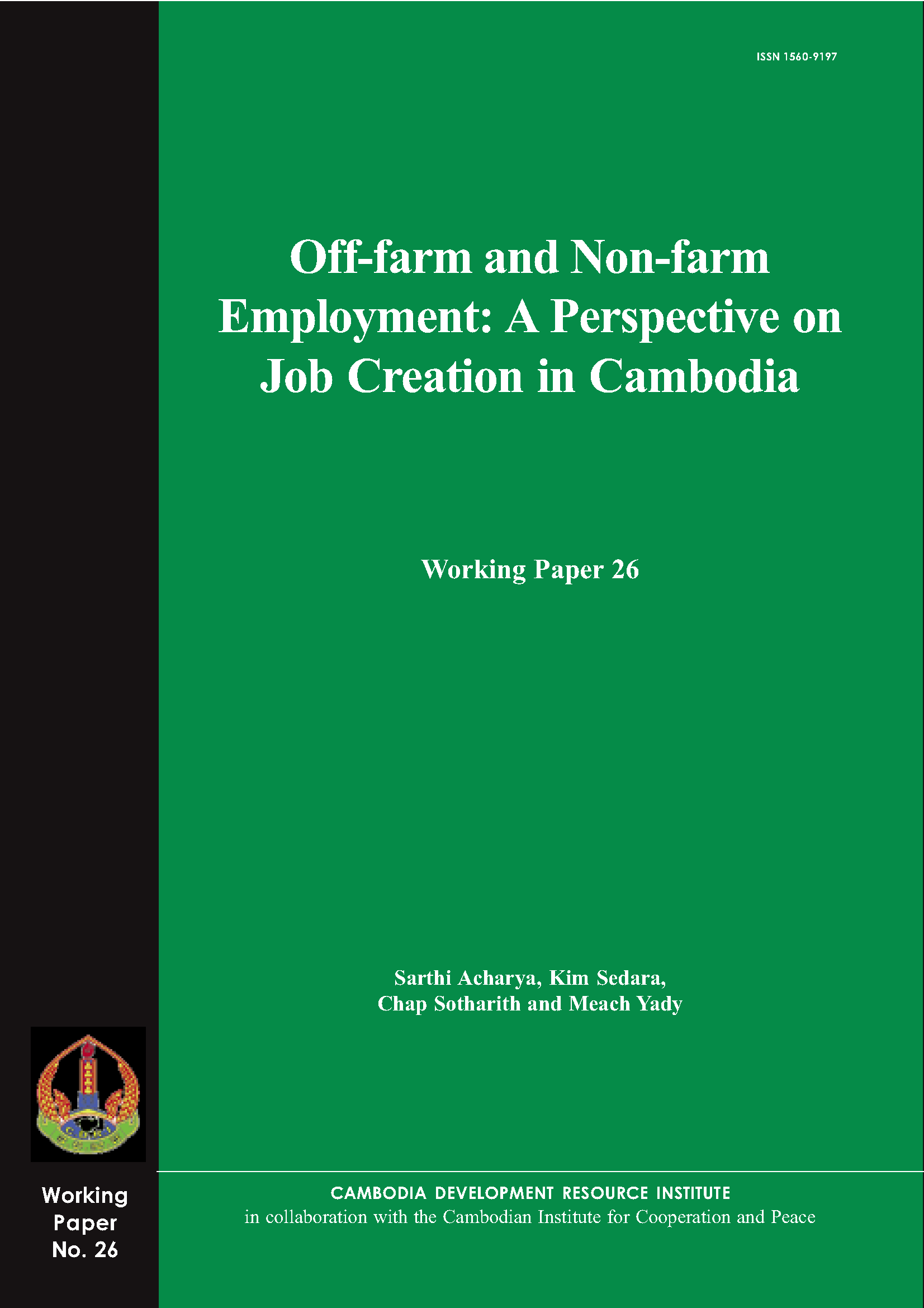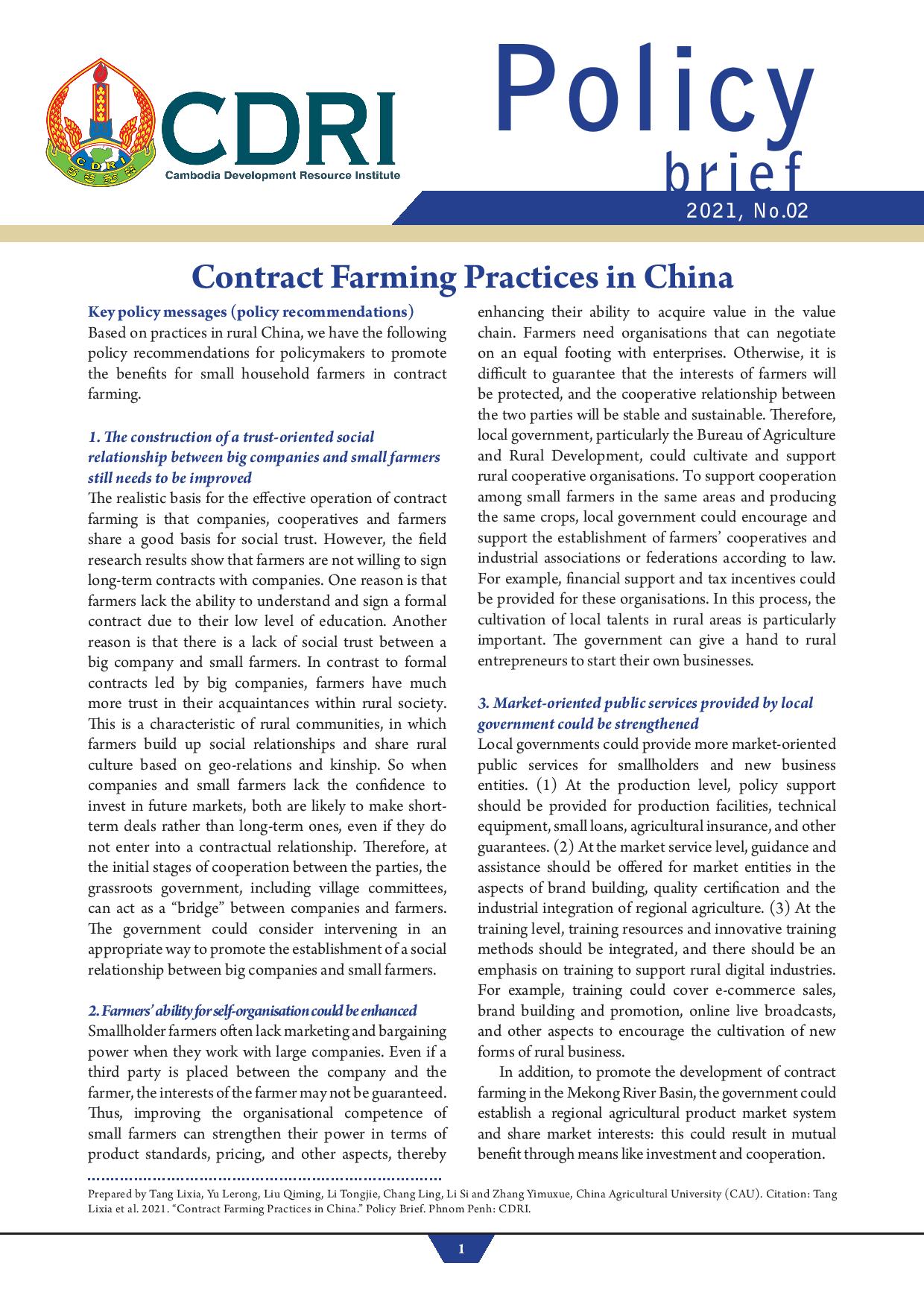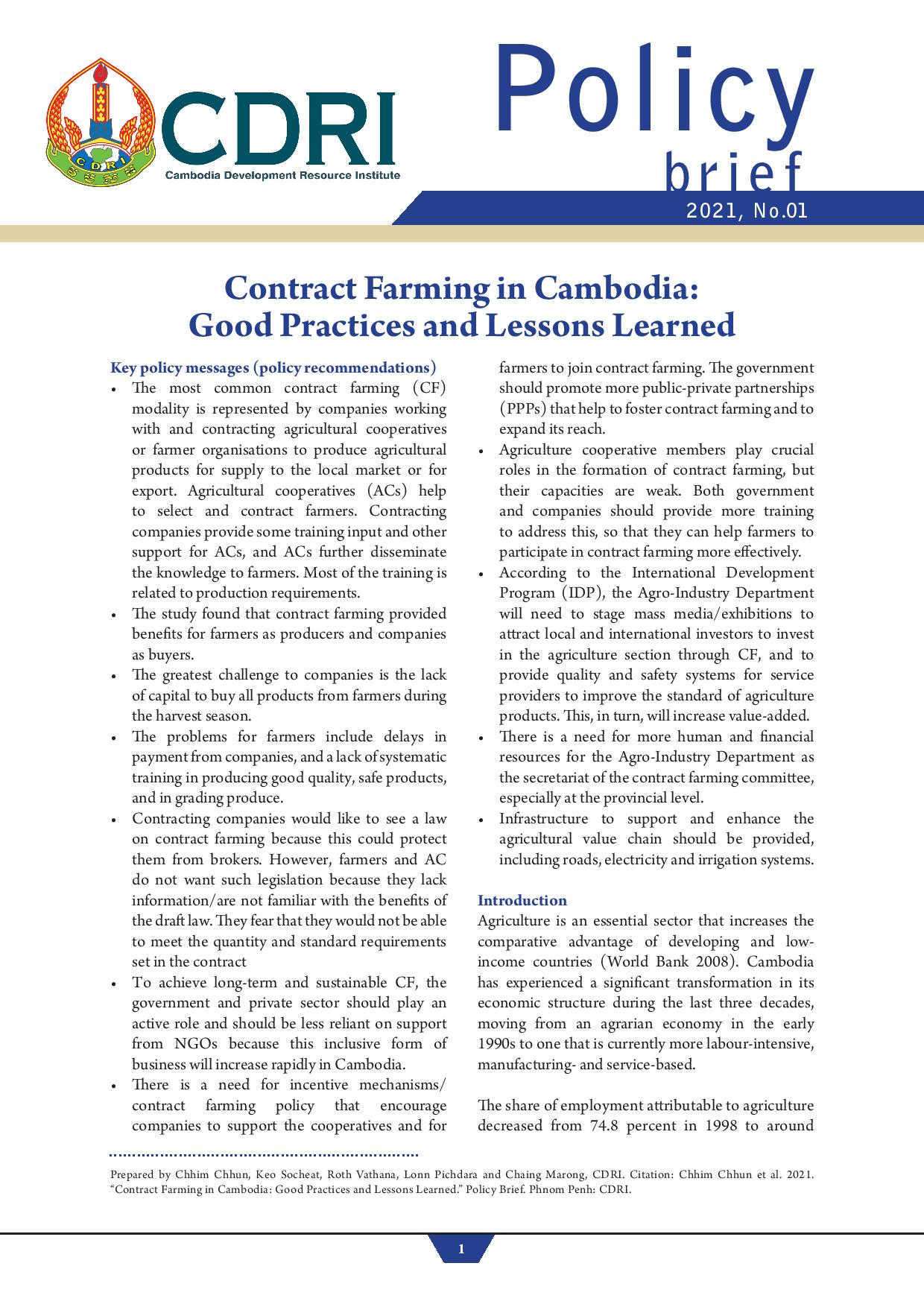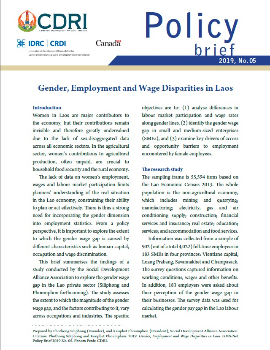
Off-farm and Non-farm Employment: A Perspective on Job Creation in Cambodia
Keyword: Rural employment, non-farm economy, economic diversification, industrial development, policy and market linkages
Khmer PDF (7)
Abstract/Summary
In rural Cambodia, options to maintain sustainable livelihoods have been limited to subsistence agriculture for reasons that are largely historical. Efforts to modernise the economy during the 1950s and 1960s bore some fruit, but the real impact was restricted to a few urban areas. During the 1980s and 1990s, some activities fanned out into the rural areas, and some existing ones like fishing, became more formalised. Nevertheless, to date, the rural non-farm economy has yet to grow to a magnitude that can make an impact on the structure of rural employment. This study arises from the imperative to create more and diversified jobs in the transitional economy of Cambodia, with a view to alleviate poverty, unemployment and underemployment.
Published by the Development Analysis Network in March 2003, this working paper comprises the Cambodian chapter from a volume of country studies under the title Off-farm and Non-farm Employment in Southeast Asian Transitional Economies and Thailand. In Chapter 2, this paper traces the historical and factual basis of different non-farm and off-farm activities that have existed in the country. Chapter 3 examines the existing data as obtained from secondary sources to paint a picture of contemporary non-agricultural activities. Chapter 4 details the status of rural industries in Cambodia as collated from field studies conducted here, and supplemented by existing literature on specific industries. Chapter 5 presents a discussion on financial and economic parameters, based on surveys of 276 enterprises in seven industrial groups. Chapter 6 discusses the market linkages of these enterprises. Chapter 7 presents a synopsis of existing policies, including those on training. Concluding remarks are made in Chapter 8.
It is hoped that this publication will be of useful reference to policy analysts and decision-makers both inside and outside the government and that it will be of particular use to those advocating for, or working with, non-farm and off-farm activities in Cambodia.



